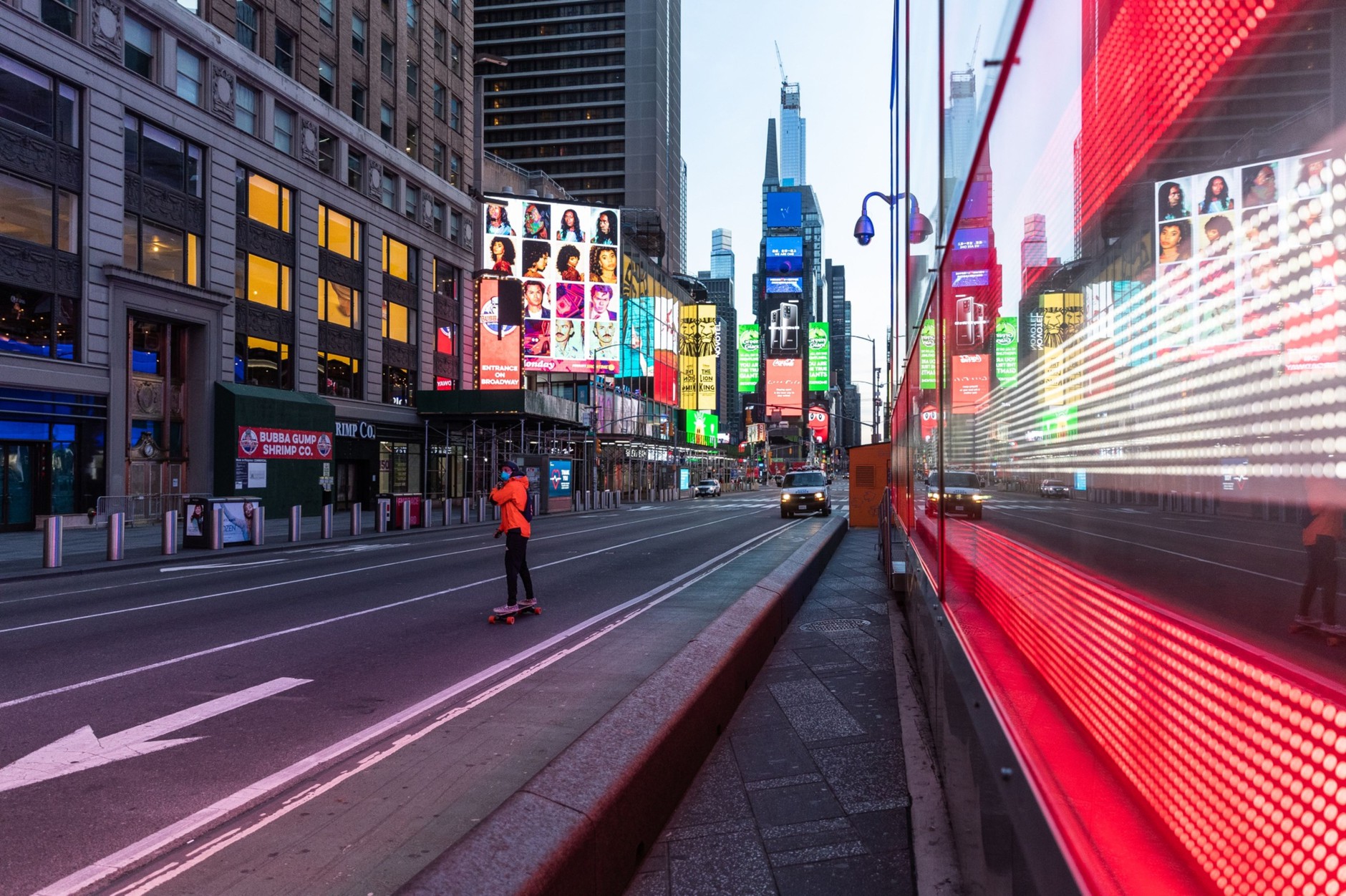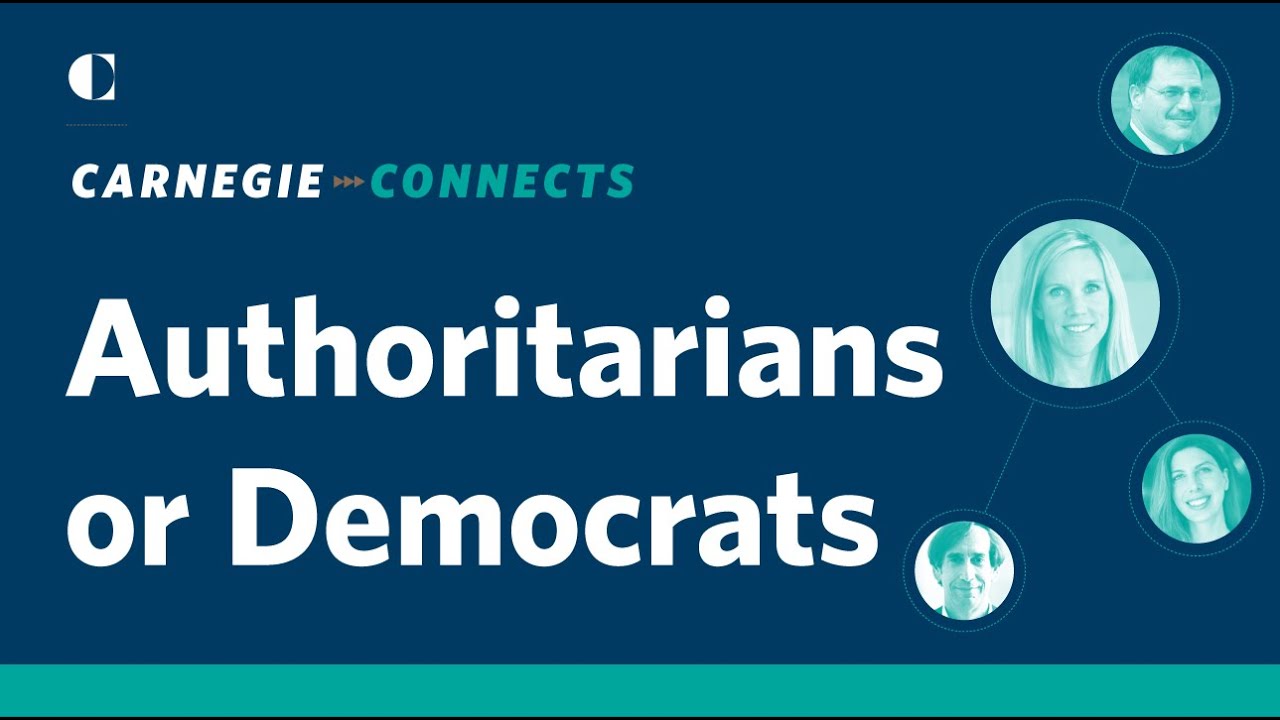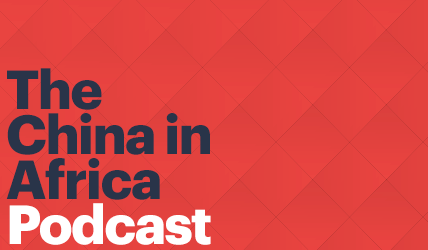Highlight
- Safe to walk the sidewalk
- CSOs to the rescue
- Corporate code as national character?
- ABCDead Air
- Double the pain, double the payout?
- TAI Spotlight: Evaluating a Funder Collaborative: Putting TAI’s evidence and learning into action

Photo credit: Jeenah Moon/Bloomberg
Safe to walk the sidewalk
One coronavirus casualty this past week was the sensor-laden, tech-driven “city of tomorrow” planned for a district of Toronto. Google corporate sibling Sidewalk Labs abandons the partnership with the city citing economic turmoil from the pandemic, although opposition from data rights groups may have played a part. Former co-chief executive of BlackBerry, Jim Balsillie, considers it a “big step back for surveillance capitalism and a victory for making technology serve society rather than capture it.” See more on surveillance, rights and data use from Albert Fox Cahn and Sarah Lucas in TAI Spotlight below.
In its new report, Global Partners Digital explains why and how states can incorporate human rights to their national Artificial Intelligence strategies, while Eli Levite and Lyu Jinghua explain what we can learn from the pandemic that we can apply to securing cyberspace.
Hewlett Foundation’s President Larry Kramer discusses the future of open access and how TAI member Hewlett is applying creative commons principles and standards in its own work. That commitment to open access extends to the aid sector in general, so Kramer would no doubt be glad to know that the government of Jordan is using the Aid Flows Information System (AFIS) to strengthen public trust in governance through transparency, accountability, and data sharing.
Don’t miss ICTWorks’ practical insights to resources, solutions and call on Covid-19 digital response and from MobLab, view these two new guides for applying systems thinking tools and approaches to campaigning work today. The first covers systems thinking for campaigning and organising and the second covers systems mapping for campaign design.

Essential Watching: Authoritarians or Democrats? Who’s better positioned to cope with COVID?
Hear the take of the likes of Larry Diamond, Andrea Kendall-Taylor, and Rachel Kleinfeld speak on the impact of the pandemic on different systems of government and which regimes will come out relatively better.
CSOs to the rescue
A new interview series featuring members of the Women in Transparency network. First up is Zoe Reiter, the Director of Civic Engagement at the Project on Government Oversight highlighting transparency and accountability issues to watch right now, why tax avoidance is the number one corruption issue of our time, and what should change in the transparency field.
Great thread from Norma Althuser at Hewlett Foundation (TAI member) on ways evidence, creatively generated and synthesized by a variety of organizations, is helping to inform policy responses to COVID-19.
The Covid-19 pandemic has led many countries across the world to pass emergency legislation threatening permanent loss of civil liberties. Franklin De Vrieze explain how best to review and amend these emergency powers post-pandemic.
Juan Pablo Guerrero highlights the role of Civil Society Organizations in ensuring transparency and accountability in emergency policy responses as Kenyan CSOs call for further action on debt relief, and more transparency and accountability around management of COVID-19 funds to assure they are channeled to the needs of the most affected.
Janeen Madan Keller, Julia Kaufman and Amanda Glassman reveal just how hard it is to track COVID-related aid funding to assure accountability and the World Bank governance team suggest ways governments can avoid falling foul of corruption risks in Coronavirus responses.
Some African politicians are forgoing or donating their money to support national COVID-19 response and recovery. However, with corruption risks heightened in the urgent response to COVID-19, Grant Godfrey calls for transparency and accountability on how these donations are used because “doing so would galvanize citizens in support of response efforts while providing a foundation for stronger democratic institutions after the crisis has passed.”
Corporate code as national character?
Finally moving ahead with pledges made at the 2016 anti-corruption summit, Argentina has established new beneficial ownership disclosure requirements and other disclosure requirements even amid COVID-19 responses. Next steps? Poder Ciudadano, the Transparency International arm in Argentina, wants the Argentine government to make the information gathered open and accessible to the public in line with the international standard.
Want to know how beneficial ownership can be useful? The Centro del Estudios de Trabajo (Cedetrabajo) in Colombia has a fact sheet for that! The center has partnered with Global Financial Integrity to produce a series of sheets explaining why different aspects of financial transparency matter for the local context.
Tax Justice Network unpacks how countries like France, Germany, Italy, Belgium and Spain lose as much as $17 billion a year in corporate taxes to EU-based US firms shifting profits to the Britain, Switzerland, Luxembourg and the Netherlands. Expect more scrutiny of such practices as government seek to shore up all the revenues they can to restore their balance sheets. Same applies to cost-benefits of foreign investment writ large. See the anger of China’s Zijin Mining (and the Chinese state) at Papua New Guinea ending its gold mine lease. Warnings abound.
Yet, what of seeking more tax from domestic elites? The Indian government criticizes policy papers from Indian internal revenue service experts that suggested tax hikes for the wealthiest to help country cope with lockdown fiscal consequences. Apparently, a COVID wealth tax is too politically sensitive a prospect.
An anonymous former US treasury official proposed a stronger public-private partnership to combat entrenched networks of trade-based money laundering.
Want some light relief? Check out Antoine Levy’s thread that summarizes countries’ characteristics by how they describe their country corporate income schedules. Trust us – give it a read!

Essential Listening: It’s Time We Talk About All That Chinese Debt in Africa
As calls grow for debt relief/restructuring grow for African countries amid the pandemic, China’s sovereign role as the biggest lender on the continent highlights how debt issues have gained a new complexity (and new players) since the last crisis. Jubilee Debt Campaign’s Head of Policy Tim Jones joins Eric Olander & Cobus van Staden to discuss the complexities involved in the current debt relief debate in Africa amid the ongoing COVID-19 pandemic.
ABCDead Air
Last week, we detailed the depressing litany of attacks on free press worldwide. One more blatant example to add to the list as the Philippine government pulled the plug on the country’s leading broadcaster, ABS-CBN Corps, after its 25-year congressional franchise ended, pending approval for a renewal. Philippine President Rodrigo Duterte had been critical of the broadcaster’s news coverage and repeatedly threatened to shut it down in the past.
As the cost of carrying out independent journalism grows, leaving independent news outlets hostage to government subsidies and whims of billionaires, South Africa’s Mail & Guardian Editor in chief, Khadija Patel calls for more international funding for public interest media rather than it being “a playground of a few billionaires.” TAI member Luminate is already stepping up to this challenge by backing an international coalition to launch the International Fund for Public Interest Media that supports the development and sustainability of public interest media – especially in resource-poor countries. (See more under TAI Spotlight). In support, Ghana’s former President John Kufuor calls for more international support to rescue independent media globally and advocates for more investment in trustworthy information in Africa. According to Kufuor, “Fulfilling Africa’s future agenda will require us to change the values our societies place on knowledge and expertise and the way we communicate and interact with one another.”
Double the pain, double the payout?
Lisa Pilar Cowan says it’s time for philanthropy to keep up with the current constant change in the era of COVID-19. Benjamin Bellegy, Chris Worman and Lysa John assess changes needed to ensure a stronger supporting environment and enabling infrastructure for civil society and how we can emerge stronger from the COVID-19 crisis. Checkout the responses of philanthropic support organizations like TAI to gauge priorities for the philanthropy sector in responding to Covid-19.
Chuck Collins and Helen Flannery make the case for the US government to require foundations to double their annual required spend for 3 years to unlock what they estimate would be an additional $200 billion to ease the pain of this pandemic. Seems that Scott Wallace, co-chair of The Wallace Global Fund, has been listening. The Fund is committing to spend 20% this year and urges the required spend be extended to Donor Advised Funds.
Hilary Pennington at Ford Foundation argues it is not enough to just increase $ of giving but how it is given (see TAI Spotlight below). That need is highlighted by a new report by Bridgespan and Echoing Green that reveals philanthropic money is harder to get and comes with more strings attached if you are a non-profits run by people of color compared to those lead by their white counterparts. As Bridgespan’s chief learning and innovation officer, Peter Kim, succinctly puts it: “Philanthropy is undermining its own ability to achieve the type of social change it aspires to.” Apparently not a surprise for people working in the sector. The question is how fast can we change?
One way might be through renewed commitment to learning. Corey Newhouse suggests considering participatory and emergent evaluation approaches to allow for two-way learning between funders and grantees when evaluating their COVID-19 emergency grant strategy.
TAI Spotlight: Evaluating a Funder Collaborative: Putting TAI’s evidence and learning into action

Evaluating a Funder Collaborative: Putting TAI’s evidence and learning into action | Transparency and Accountability Initiative (TAI)
In the second of two blogs that discusses TAI’s main evaluation insights, TAI Head of Learning and Impact, Alison Miranda highlights the evaluation’s learning value to TAI’s future collective work and what the collaborative is doing to act on those learnings. Read the first part of the blog to learn what motivated TAI to commission an external evaluation and a summary of the main evaluation findings and learnings in TAI’s evaluation brief.
Free media can be a life-saver in a pandemic | Luminate
The economic fallout of the coronavirus pandemic has impacted public interest journalism more than ever, especially in low- and middle-income countries where advertising and audience revenues are already dangerously low. Luminate’s Managing Director Nishant Lawani and the Head of Policy at BBC Media Action, James Deane advocates for critical support for media outlets that shine a light on our governments and societies.
Watching the Watchers during a Pandemic | Open Society Foundations
Open Society’s International Migration Initiative’s Monica Greco spoke to Albert Fox Cahn, the Executive director of the Surveillance Technology Oversight Project, on the privacy impact of COVID-19 surveillance technology on civil rights and the civil society at large. “We are seeing some incredible claims from for-profit surveillance vendors who see this catastrophe as a chance to make a buck. They are coming forward and claiming that their tool, their system, is the solution to this crisis. But while we hear such claims, we don’t see much data,” says Fox Cahn.
Data in the time of COVID-19: Six ways to reconcile data use and data rights | Hewlett Foundation
Program Officer in Global Development and Population at the William and Flora Hewlett Foundation, Sarah T. Lucas shares six important ways governments, advocates, and experts can reconcile data use and data rights during the coronavirus response in the most privacy-preserving ways possible.
Hilary Pennington on Ford Foundation’s Response to COVID-19 Pandemic | Ford Foundation
Listen to the Executive Vice President of Programs at the Ford Foundation, Hilary Pennington as she highlights how the Foundation is providing support to grantees during the pandemic and the unique role of philanthropy in reimagining new systems in grantmaking practice. “I would avoid the words ‘get back to normal’ because normal wasn’t so good and wasn’t very just for very many people…We shouldn’t try to go back to what was before. We should try to imagine something that’s better.”
Calls and job listings
Job postings at Ford Foundation – Ongoing
Job postings at Luminate – Ongoing
BetterTogether Challenge for innovators – Ongoing
Job postings at Democracy fund – Ongoing
Free Digital Security Training – Ongoing
Open Road Alliance Charitable Grant and Loan to organizations responding directly to COVID-19 – Ongoing
Government Affairs Senior Policy Advisor, International Financial Institutions at Oxfam – Ongoing
Pulitzer Center Coronavirus news collaboration challenge – Applications will be reviewed on a first-come, rolling basis
Call for proposals: Informality, tax, and the state – Proposals accepted on a rolling basis
Call for suggestions on humanitarian and development data forum agenda – May 2020
On Think Tanks survey to capture effects of COVID-19 on global think tanks – May 8
Creatives needed for exciting animation project – May 10, 2020
Call for Projects Paris Peace Forum 2020 – May 12, 2020
Research opportunity – Enabling and inspiring duty-bearers to act with integrity – May 17, 2020
Research opportunity – Achieving positive solutions to citizen-identified problems with service delivery – May 17, 2020
TAI Qualitative Researcher –May 18, 2020
DFID Frontier Technologies Hub COVID Action Data Challenge – May 18, 2020
Media integrity contest for South Africans – May 19, 2020
Summer school for journalists open for Russian citizens – May 20, 2020
Call for applications: Intensive anti-corruption training for future leaders – May 20, 2020
Lead Researcher at ICTD DIGITAX programme – May 24, 2020
Policy and engagement consultant at ICTD DIGITAX programme – May 24, 2020
Rapid-Response Grants on Covid-19 and the Social Sciences – June 1, 2020
Proposal submission for the 2020 Summer Evaluation Institute – June 7-10, 2020
(Senior) Research Scientist for AidData Underreported Financial Flows Program – June 12, 2020
Marielle Franco Award for feminist essays 2020 – June 16, 2020
Open call for grants funding on social accountability and transparency in the national education sector – June 19, 2020
Proposal: Working together to improve governance and anticorruption (Central and Eastern Europe focused) – June 30, 2020
Reset. Information control fellowship – July 1, 2020
Reset our future fund for organizations and people using technology, research, and education that help tackle these challenges – July 1, 2020
Reset. Resident fellowship – July 1, 2020
IBM call for Code Covid-19 Global Challenge – July 31, 2020
Amartya Sen essay contest 2020: Illicit financial flows – August 31, 2020
Call for submissions to SSIR Series: Social change in an era of extreme polarization – Last Thursday of every month until early 2021
Calendar
Please double check the websites for these events to make sure they are still happening – many are subject to change due to the spread of coronavirus.
Transparency International: 19th International Anti-Corruption Conference – (Postponed)
Dart Center webinar series on COVID-19 reporting (Running till 30 April)
How to respond to COVID-19 through open government (Part of the Open Response + Open Recovery series) – May 5, 2020 (7am-8am EDT/12pm-1pm BST)
Strengthening transparency and accountability in budgeting and contracting – May 5, 2020 (10:00 ET/14:00 GMT)
2020 Collective Impact Virtual Convening – May 6 – 8 2020 (12:00 CDT)
Global Digital Development Forum May 6, 2020 6AM-10P GMT
Webinar: Time for a Selfie: Evaluation Capacity building for Funders – May 6, 2020 (1:00 – 2:00 PM EST)
Open service delivery in health – Communities and governments working together – May 6, 8:00 ET/12:00 GMT
Keeping information and data out of lockdown – May 6, 2020 (15:00 ET, 19:00 GMT)
Access to justice and open government during a pandemic – May 7, 2020 (8:00 ET/12:00 GMT)
Open government and digital governance in the time of COVID19 – May 7, 2020 (10:00 ET, 14:00 GMT)
Frontiers of Social Innovation: People, Power & Resources: The Redistribution Wave – May 12-14, 2020 (Stanford University, California, USA)
Fundraising in a crisis: focus on donors most likely to give —May 14, 2020
Donor advised funds and their critics: Do DAFs help or hurt philanthropy? – May 14, 2020 (11:30AM – 1:00PM PDT)
Webinar: International Day Against Homophobia, Transphobia and Biphobia (IDAHOTB) 2020 — May 18-22, 2020 (Online)
People power in a pandemic: How movements are confronting COVID – May 19, 2020 (10-11:30A EST)
How to be the “Chief Kindness Officer” in Volatile Times: Compassionate leadership in response to the COVID-19 crisis – May 20, 2020 (11 a.m.-12:30 p.m. PT / 2-3:30 p.m. ET)
ADB webinar on IDAHOTB 2020: Bridging the LGBTI Inclusion Data Gap – May 20, 2020 (Online)
2020 Data Foundation virtual symposium – May 20, 2020 (10:00 AM – 2:30 PM EDT)
Awaken for Impact: Engage for Good 2020 virtual conference – May 28, 2020
2020 Media Impact Forum (funder-only gathering) – June 2, 2020 (New York, United States of America)
Human Rights Litigation Summer School at Berlin, Germany – June 8-12, 2020
Women and Girls Africa Summit – June 9-12, 2020 (Durban, South Africa)
RightsCon 2020 – June 9-12, 2020 (San Jose, Costa Rica)
2020 Neighborhood Funders Group National Convening (philanthropy support to grassroots power building) – June 29 – July 1, 2020 (Washington, DC)
WE EMpower UN SDG Challenge 2020 – September 18 – 27, 2020 (New York City, United States of America)
The 2020 Journalism Funders Gathering (funder-only gathering) – October 6-7, 2020 (Philadelphia, United States of America)
Humanitarian and Development Data Forum – November 2-4, 2020 (Chambery, France)
International Open Data Conference –November 18-20, 2020 (Nairobi, Kenya).


